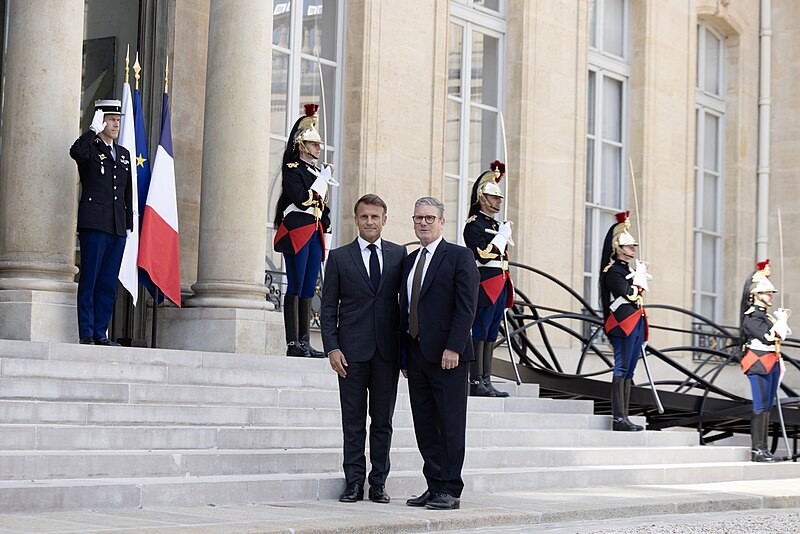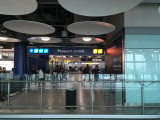
French President Emmanuel Macron and British Prime Minister Keir Starmer are set to visit Washington next week, amid growing European concerns over U.S. President Donald Trump's shifting
stance on Ukraine and his overtures toward Moscow.
The leaders of Europe’s two nuclear powers, traveling separately, aim to persuade Trump against hastily brokering a ceasefire deal with Russian President Vladimir Putin at Ukraine’s expense. They will also push for continued European involvement and explore military guarantees for Ukraine’s security.
Macron, who hopes to leverage his past rapport with Trump, has warned that a poorly negotiated deal—effectively a capitulation for Ukraine—would project weakness to global adversaries, including China and Iran.
"I will tell him: deep down, you cannot be weak when facing President Putin. That’s not who you are, it’s not in your nature, and it’s not in your interests," Macron said during a social media Q&A session ahead of his White House visit on Monday.
Growing European concerns
The visits come as tensions rise between Trump and Ukrainian President Volodymyr Zelenskiy, whom Trump recently labeled a "dictator"—a statement that has rattled Kyiv’s European allies. This development is part of a broader shift in U.S. foreign policy under Trump, affecting trade, diplomacy, and even domestic European affairs.
Philip Golub, an international relations professor at the American University in Paris, noted that Trump’s rapid policy shifts and the rhetoric from his administration have shocked European leaders.
"They never anticipated that an ultra-nationalist coalition in the U.S. would so directly challenge Europe’s role in global affairs," Golub told Reuters.
Macron, he added, sees his trip as historically significant, ensuring that Europe has a voice in any final negotiations over Ukraine. However, whether he can achieve tangible results remains uncertain.
Starmer, who has also stressed that any peace deal must prevent future Russian aggression, is scheduled to arrive in Washington on Thursday.
Trump, speaking on a Fox News podcast Friday, dismissed Macron’s and Starmer’s efforts to end the war, stating, "No meetings with Russia!" However, he acknowledged Macron as "a friend of mine" and described Starmer as "a very nice guy."
Military guarantees under discussion
Despite Trump's skepticism, Britain and France are working to demonstrate their commitment to European security. Both countries are refining military support proposals for Ukraine and will urge Trump to include U.S. security assurances in any ceasefire agreement, according to Western officials.
Initial military planning for post-war scenarios began last summer but gained momentum in November after Trump's election victory, according to a French military official and two diplomats. Denmark and the Baltic states have also contributed to discussions on Europe's role should a peace deal require international security forces.
While Britain and France have ruled out deploying troops to Ukraine immediately, their proposals focus on providing air, maritime, land, and cyber support to deter future Russian aggression. Potential measures include stationing air and naval assets in Poland or Romania to safeguard international airspace and secure Black Sea trade routes.
Among the options being considered is the deployment of European peacekeeping forces. While the U.S. may not need to send ground troops, American medium-range missiles and nuclear deterrents would still play a crucial role, officials said.
Rather than positioning troops along Ukraine’s 2,000-km (1,243-mile) front line, European forces could be tasked with protecting critical infrastructure such as ports and nuclear facilities. However, Russia has made it clear that it opposes any European military presence in Ukraine.
A French military official emphasized that troop numbers are not the key issue at this stage. The focus, they said, is on Europe’s ability to mobilize and coordinate an interoperable force.
"It’s not about the number of troops in Ukraine. It’s about organizing an effective security framework," the official said.
One Western official estimated that even 30,000 troops could be an overstatement, with final figures depending on diplomatic agreements, international mandates, and the level of non-European involvement. Photo by Number 10, Wikimedia commons.







































